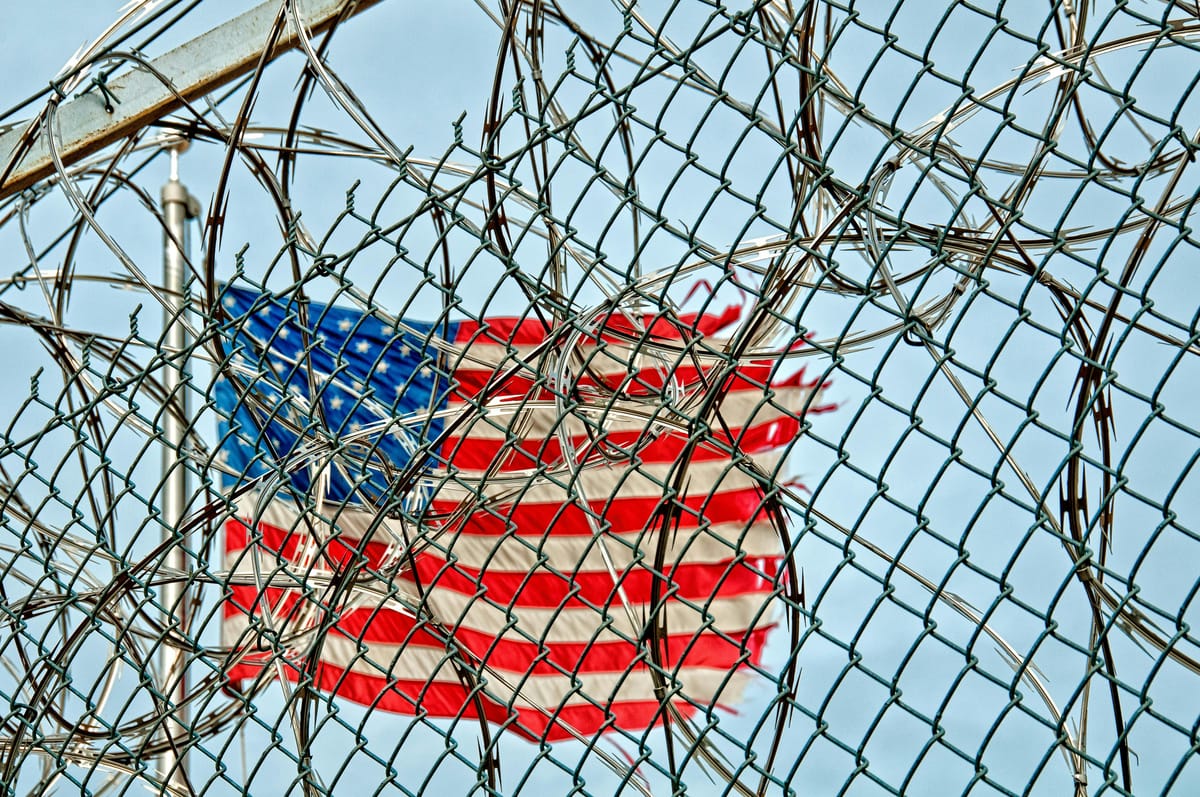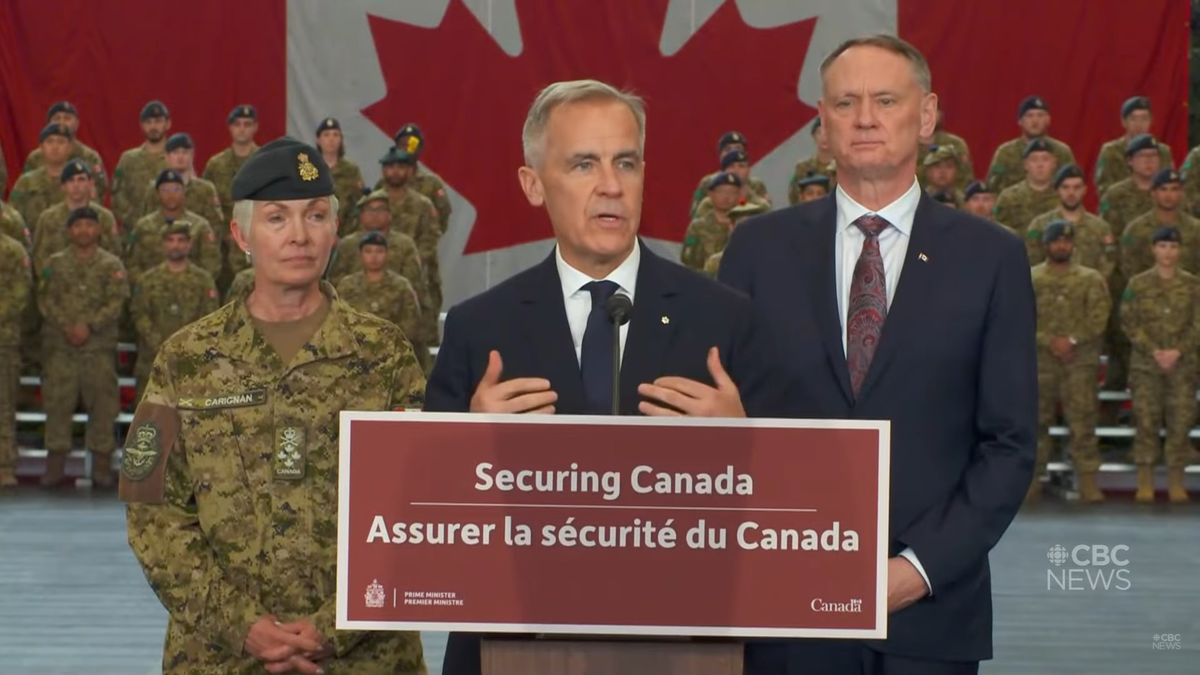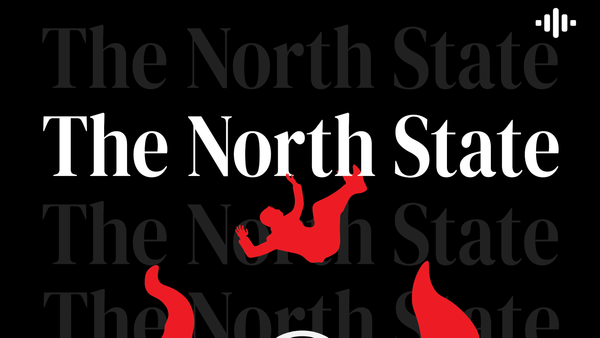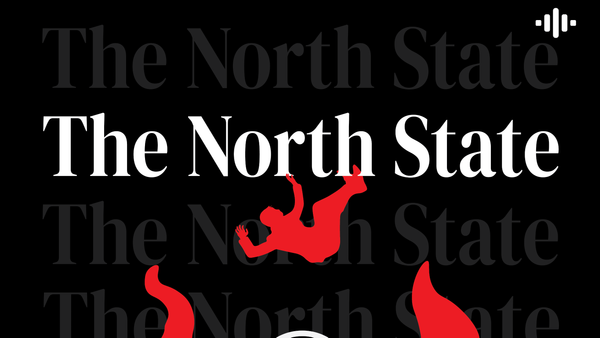Opinion Columnist Determined to Absolve US of All Responsibility
Raquel Garbers puts a fine point on running defence for US imperialism

In a time of geopolitical turmoil, rising fascism and economic disaster, it would be reductive to point the finger at one singular actor. The world is more complicated than to bend to the whims of one man. However, one man can certainly play a disproportionate role in all these factors, especially if he leads the premier geopolitical superpower and economic powerhouse that is the USA. President Donald Trump, therefore, shares a large share of blame when it comes to a shift in the preceding order, especially when his trade policy is driving up tariffs seemingly at random. If nothing else, he is fulfilling his promise to the American people that he would change things.
Naturally, this has had disastrous results for those that disproportionately relied on the US for the operation of their economies and the projection of geopolitical strength. Canada, being possibly the most exemplary of these nations, has had it affect our politics deeply.
Enter Raquel Garbers, visiting executive at the Centre for International Governance Innovaction (CIGI). Garbers has been director general for strategic defence policy at the Department of National Defence, as well as a visiting practitioner at the US Department of Defense. Suffice to say, Garbers' roles show an investment in Canada and the US remaining allies.
Given the complex nature of global politics, Garbers' article published in the Toronto Star in May of this year may seem questionable upon first glance; that we shouldn't blame Trump for the world's problems. However, it becomes very clear that the only standard by which Trump's USA should be judged is by comparing them to the common view of their geopolitical rivals.
"In truth, the U.S. has changed because the world has changed," Garbers writes. "Over the past three decades, complex structural forces and hostile states’ predatory practices have smashed the postwar order and eroded the collective economic and military might of the allies, making war between major powers more possible." Of particular note is the timeframe that she uses here. "Over the past three decades" places us approximately since the overthrow of the Soviet Union, which left the USA as the sole superpower.
Garbers' argument then follows that Canada should take a step back from blaming Trump. Her solution to the new aggressive line towards allies from the Trump administration? Give them what they want. Specifically, Canada and other nations should "reinforce America’s power of deterrence and give the U.S. a compelling reason to continue serving as the 'anchor ally' that underpins our collective defence." Garbers' reasoning here is that the other global powers, namely China and Russia, are aggressive, rogue and unreliable states. The US is better than them, and we should be thankful we are under the rule of the US empire.
This is not a stray thought Garbers has published and then abandoned. In The Hill Times this week, she penned an article that almost verbatim took its headline from the final line of her original Toronto Star piece. In the Star piece, she concludes that the end result of blaming Trump results in being a less attractive ally to the US, "In other words, we do Beijing’s work for it."
Now we have an article that proclaims "You're doing a solid for Moscow and Beijing," by being angry at the US. Garbers uses this new article to double down on her defense of the Trump regime. In rebutting what she characterizes as "absurd anti-United states narratives that have hijacked their public dialogues," Garbers sharpens her rhetoric considerably, focusing on the possibility of global war. This is not wholly unsurprising. Throughout each of her pieces, she poses strong military capability as a crucial goal of the US and its allies. "If war were to break out in the Indo-pacific," Garbers now writes. "There is no guarantee that the U.S. would defeat China." Why would the US be involved in a war off the coast of another continent? China is our enemy– Don't ask questions.
All talk of militaristic expansion and aggression in the past three decades is shifted from the US to its rivals. No mention of the US invasion of Afghanistan or Iraq (twice). Absent are recent examples like the country's military support of Israel, it's plundering of Ukraine or its blatantly illegal attacks in the Caribbean. Instead, Garbers points the finger at "authoritarian states" like China. Their crime? Imposing their will in the global sphere "without the risk of being checked by the Americans." I wonder why an economic superpower would want that?
In her estimation, China has lead a "quiet war" consisting of solely nebulous concepts like "complacent populations" and "weak militaries." One presumes that these are aspects of the US and its allies rather than China. As a reminder, the US spends $997 billion on their military, more than the next nine countries combined. China is a distant second, spending less than a third ($314 billion) of the US budget in 2024.

When getting more specific, Garbers says that it is ridiculous to compare the US to China, which "attacks western states with military manoeuvres, hostage diplomacy, cyberattacks, espionage, sabotage and schemes to corrupt their political leaders." No citations or links are given to support any of these claims, which serve merely as signals that China is bad.
In these examples, she is also mistaken. The US absolutely engages in hostage diplomacy. The federal government has swapped Venezuelan prisoners deported to El Salvador with Venezuela for US citizens. Though it is difficult to gauge how deep the US sponsored cyberattacks against geopolitical rivals goes, but we know they are options presented to presidents. The US has an entire agency dedicated to espionage in foreign countries. Sabotages are likely in the mix, though the clandestine nature of these tactics makes it difficult to accurately measure how often they're deployed. However, in the case of China "attacking western states with military manoevures," I am at a loss as to what she could be referring. Perhaps I am missing something here.
Ultimately, if the argument is that China is doing this with Canada, the response is that would likely change if Canada adopted a more diplomatic approach. The assumed result is that, in this scenario, the US would deploy these tactics against us. Beyond this hypothetical scenario, it obscures the current reality. Our largest ally and trading partner continues to openly muse about annexing us; is this really nothing for us to consider? Are we supposed to be soothed by the tantalizing image of US warships landing on Chinese shores with Canadian soldiers?
In the case of Russia, it's absolutely undeniable that the Russian invasion of Ukraine is condemnable. But let's keep things in perspective. Canada nominally has no issue forming strong alliances with countries that invade others, do we?
When taken as a whole, Garbers' argument is that all should be sacrificed in order to prepare for war with China and Russia. Worsening trade relationships, declining living standards, the abysmal effect of US domestic politics, including targeting cities for terror campaigns, and open talk of annexing Canada are irrelevant if we can send waves of human beings to die fighting China. Be thankful for deteriorating living conditions. Are you to tell me that Canada should have favourable ties with a country that favourably restructures debt to others? The military analyst says no.
This is how the rank militarism of Carney and Trump is laundered to the Canadian public. The boogeyman of geopolitical rivals is inflated purely to diminish the threat of the empire next door. China is offering more favourable deals to Canada now. Trump is demanding Canada scrap sources of revenue in order to even negotiate a deal. It's clear that Carney has no intention of separating from the US entirely, but when the entire issue is reduced to a theoretical hot war between the US sphere of influence and China, there is no reasonable explanation. Instead, propagandistic tropes are deployed and repeated.
It's concerning that the Toronto Star and The Hill Times have both shown how valuable this view is to their editorial board. But Canadians should not take jingoistic militarism as a substitute for material analysis.






